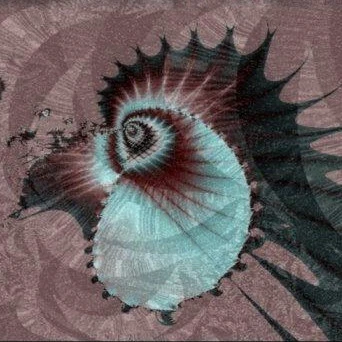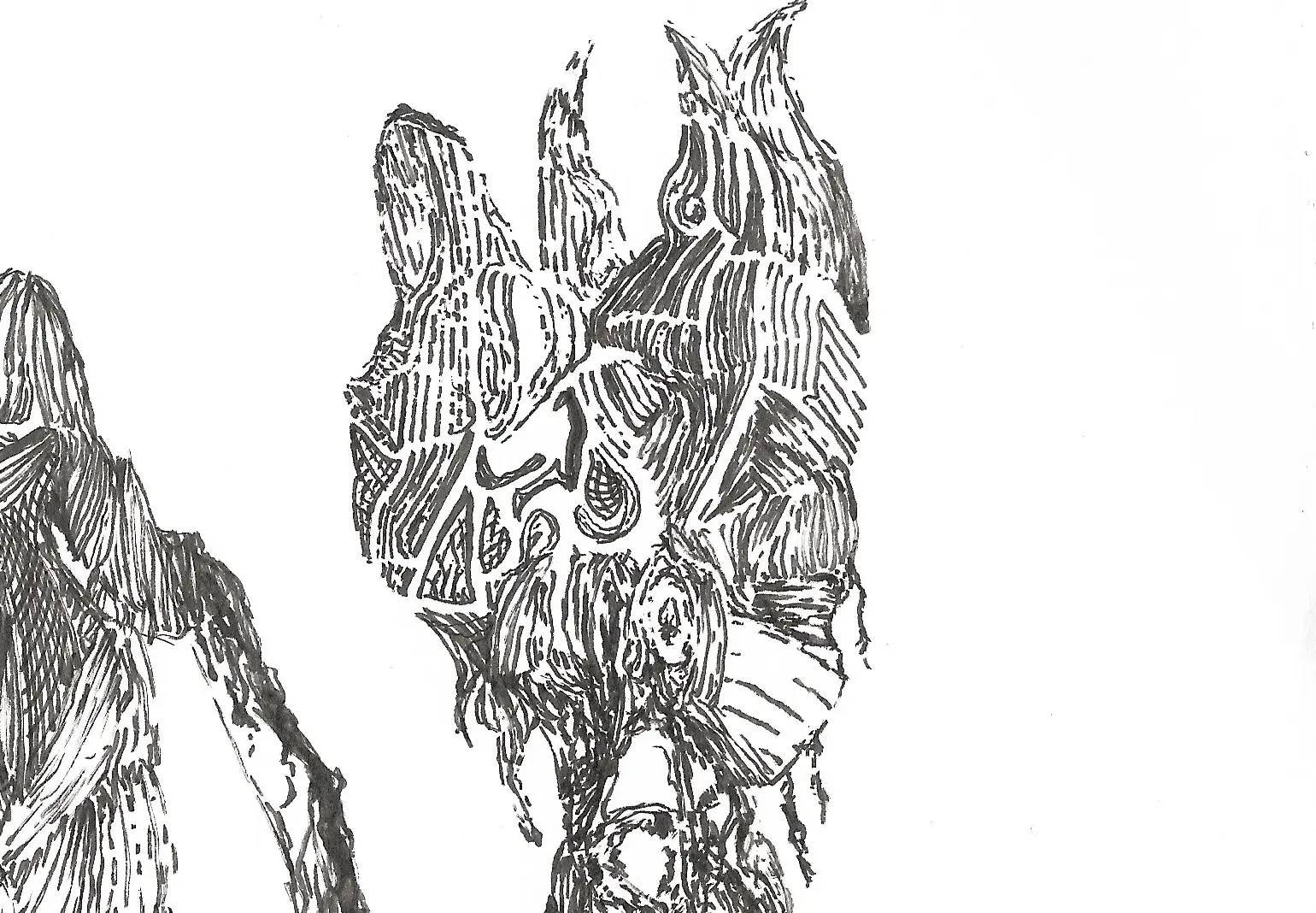From where I’m sitting, it looks like death should not be the end in that case.
You can’t perceive the passage of time when you are dead, so you’re just going to experience dying and then immediate rebirth after the countless eons pass for that rare moment where entropy spontaneously reverses to form your mind again.
Pure materialist response:
‘You’, your consciousness, is not a thing, but a process, produced by mainly your brain, along with your sensory organs and nervous system.
Because it is a process, it is always changing, sometimes subtly, sometimes drastically, and is never really exactly the same same as it was 10 years ago, or even 5 minutes ago.
Death is when this ongoing process of being conscious ceases, permenantly, totally, due to the failure of the biological systems and processes that produce your consciousness.
It is a total termination of the process of ‘you’, of your consciousness.
Even if some set of conditions somehow allowed for your exact body, brain, nervous system, exact electro chemical state of all of them that would give rise to the exact same memories, whatever, even if all of that was to somehow reconstitute themselves, that would not suddenly be an awakening, a continuation of your previous consciousness.
It would be an independent copy, which, depending on whether or not it had somehow been constructed in sufficient detail as to share all your memories up until your death, still would not be you.
It may believe it is you, but it isn’t.
‘You’ died.
…
The teleporter in Star Trek kills you and makes a reconstructed clone of you, with your memories, when you use it.
Even if your pattern is capable of being stuck in the frame buffer and saved or lost, if it is saved, the thing that walks out is a very convincing and very convinced copy of you, despite this way of thinking being largely, but not entirely, stigmatized in the societies of the show.
The actual ‘you’ was obliterated upon being energized, but the illusion of this not being the case is socially normalized… somewhat comparable to how individual car ownership and usage is extremely normalized in the US, despite the well understood dangers and costs of this.
Everything ‘just works’ if you go along with it, and if you don’t, it kind of demands a reformation of much of society, and makes people think about a lot of things that they would rather not.
…
i think these questions are really uninteresting if you’re gonna insist on being purely rational materialist about it, but i think it gets more interesting when you’re willing to play with what reality might be a little more. There are religious motifs that repeat in many cultures about the eternal reocurrence. This idea that earth is made and destroyed in countless infinite, repeating cycles.
What if you and I have been going at this for a while?
But if you want the answers science can give right now, probably not
What if you and I have been going at this for a while?
Well if none of your memories carry over it’s certainly not you anymore.
You don’t lose memories as you live this life? Is someone with dementia or amnesia a different person than they were before? Memories cannot be the basis of self, they are not permenant, and are not always referenced, and each new reference creates a new slightly altered version. There is nothing that can be truly called a self in the colloquial sense, just a vague collection of things artificially stabilized. From this basis it is fair to imagine you could experience another life with the same consciousness without many remnants from the past lives.
I’m getting a fresh new consciousness every time I’m waking up.
The same consciousness that wrote the comment you’re responding to is no longer existent.
Just consciousnesses existing in the moment.
Do you think so? I think what we are internally isn’t fully dependent on memory and reference, there is some element of us that just is, for at least as long as we’re alive. Behind your eyes and resting within your interior is a spark of something that has existed continuously since you were born, that little “I” of awareness may never change.
It’s always you imo. You can go through mk ultra style brainwashing, lose your sense of identity, find yourself under a new name and with new interests, but between who you were and who you are, are enough commonalities that I would dispute the notion we’re just electrical signals in wet gooey meat endlessly referencing the past to navigate the present and anticipate the future - but that’s me.
I mean what you’re describing is an innate soul that cannot be experimentally observed, similar to cissexist metaphysical sex but for broader identity. It’s an inferior concept of the self than one based off memories, language use, behavior/activity, and ego-image. I suppose even total amnesia can leave behind subconscious behaviors from prior, but this is “memory and reference,” so…
If you’re talking about the “I” of continuous stream of consciousness, this can be hijacked by multiple entities and even cut off entirely through dissociative barriers. And arguably it’s not of the same quality at a young age anyway.
And you’ve done it. Independently arrived at the truth of no-self. You don’t have to agree, but if the truly discontinuous that is reality can appear continuous, perhaps this consciousness could appear continuous with another life (I am in no way denying the laws of cause and effect).
Infinity =/= everything
Even if the universe has an infinite lifespan (unknown) that does not in any way imply any possible outcome will occur. So there is absolutely no reason to expect a body like yours will be recreated. Even if it was, it still wouldn’t be you it would be your clone.
Poincare recurrence is, as far as we understand the laws of the universe, totally possible. If you think of the set of possible states of the universe, the current state it’s in is necessarily in that set. Then, because it’s a closed system, it necessarily has to come back to that state eventually. The hard part to grasp of how that’s physically possible is that, of course, classical thermodynamics tells us that there’s an arrow of time that points in the direction of increasing entropy. But looking at statistical thermodynamics, it turns out that it’s only the case that it’s overwhelmingly more likely that a system, in the macro scale, goes in the direction of increasing entropy. A system spontaneously becoming more ordered is possible, just so very unlikely that it will take a completely unimaginable amount of time to happen. Heat death could reverse itself and little by little build up into a new big bang after silly amounts of time. Like, Tree(Graham’s Number) silly.
With scientific premises isn’t it more likely an identical “you” lives the exact same life that you did independently, rather than your consciousness picking up where you left off? Maybe Nietzsche was right, lol.
I didn’t really get to the topic of consciousness. IMO if poincare recurrence happened, there’s no reason to think that the new ‘you’ would continue your consciousness, it would just be a different person who lives the same life. But we don’t know how consciousness works.
I didn’t say it wasn’t possible
Why doesn’t it imply that? We can put a number on the chance that particles randomly come together to reform minds. That number is arbitrarily small, but it’s not zero, hence why we are considering arbitrarily large time scales.
The set of natural numbers (1, 2, 3, …) is an infinite set, but its infinite nature does not imply that it contains every number (for example, 0.5 is not in the set). Being infinite and being all-encompassing are two different concepts.
It’s very possible that the universe will have an infinite lifespan but will never accumulate matter after heat death, they will just continue to spread apart at a rate greater than gravity can gather them.
Right, but we aren’t talking about the set of natural numbers, we’re talking about the set of ways matter can be distributed in the universe. I know a living me is a possible state in this universe because I exist, so if I can spotaneously form once, why can’t I spontaneously form again?
I didn’t say it couldn’t happen, I said a universe in existence for an infinite amount of time does not imply that it would.
But again, like I said earlier even if molecules spontaneously arranged themselves such that a replica of your body is created it still isn’t you. It would best be described as a clone of you.
I was thinking that maybe if it’s similar enough to my brain, it should just pick up my consciousness from whereever the fundamental of consciousness is stored. Like what happened the first time, right?
That’s assuming consciousness is fundamental to the universe and not some emergent thing, I guess.
I know there’s an acceptable margin of error here because I can place drugs, foreign objects, inside my head to radically alter the functioning of my brain without losing consciousness or irreparably damaging it.
IDK comrade tbh you kind of stopped making sense to me here. If you think consciousness is some mystical thing that transcends time, space and matter then you don’t need probability and thermodynamics to believe you’ll live again just embrace the mysticism if it gives you peace.
I don’t know what consciousness is, but I can be sure mine exists, and yours too probably.
But it seems pretty inherently mystical to me considering we can’t even scratch the surface of researching the how and why we have qualia and subjective experience seemingly disconnected from material reality.
Idk, I took an edible and wanted to poke Hexbear with the idea, it’s a fun time!
What is this “rebirth”? There’ll be many births, perhaps many similar to previous ones, but what makes “re”? Right now, everyday on earth (perhaps on other worlds) there are many births of people who are quite similar to you already, why do they constitute any less a rebirth than someone a thousand billion years from now?
My lot isn’t with “me” and me being eternal or me reborn. I’m part of the totality.
I don’t think given an infinite amount of time the universe would produce an identical me. That’s such a specific combination of matter and chemical processes it just feels silly to assume it would happen. Even if I agreed that it would inevitably happen, I think there’s an implication that a very large number of almost but not quite mes would also come into existence (because if I understand the premise, it’s basically “on a long enough timescale every possible thing will happen”) and frankly that’s more disturbing than ceasing to exist (which, to be clear, is very disturbing to me).
I’ll also say that a clone of me with my memories is still not me. Such a thing could exist simultaneously with me and it wouldn’t reduce my desire to personally remain alive even slightly, it’s a different guy, but with a lot in common with me.
We tend to define physical objects in a way that have spatial and temporal boundaries. That means if I point to a particular physical object, you can usually draw a rough border around it, as well as talk about when it came into existence and when it goes away. The boundaries are never really solid and there’s usually some ambiguity to them, but it’s hard to even know what is being talked about without these fuzzy boundaries.
For example, if I point to a cat and say “that’s a cat,” you generally understand the rough shape of a cat and thus have a rough outline, and this helps you look for where it’s located. If there is a water bowl next to the cat, you immediately know the bowl is not the cat and is not what I’m talking about because it’s not within those borders. These borders are, again, a bit fuzzy, if you zoom up on a microscopic scale it becomes less clear where the cat begins and where it ends, but these fuzzy borders are still important because without them, if I said “look at that cat over there” you could never figure out what I’m talking about because you would have no concept of the border of the cat at all, which is necessary to locate it.
It is also necessary to our understanding that these boundaries evolve continuously. If a building was demolished, and then a century later someone inspired by it builds another with the same plans, even if it’s in the same location, we would typically not think of it as literally the same building, because they did not exist at the same times, i.e. their temporal boundaries do not overlap as there is a discontinuous gap between them. If a cat is located at one position and then later at another, its boundaries have moved, but this movement is continuous, it’s not as if the cat teleportation from one point to the next.
But this is precisely why people find the teletransportation paradox difficult to grapple with. What if the cat did teleport from one location to the next such that the original cat is destroyed and its information is used to reconstruct it elsewhere? Is it still the same cat? How we define objects is ultimately arbitrary so you can say either yes or no, but personally I think it’s more consistent to say no.
Consider if the teleporter succeeded in reconstructing the cat, but due to a malfunction, it failed to destroy the original cat. Now you have two. It seems rather obvious to me that, if this were to occur, what you have is a clone and not the original cat. They are obviously different beings with different perspectives of the world as they would each see out of their own eyes separately. If I cloned myself, I would not see out of my clone’s eyes, so it is clearly not the same object as myself.
If the teleporter clearly is merely cloning the cat when the destructive process malfunctions, then I do not see a good reason for this to change when the destructive process is functioning correctly. Let’s say the destructive process malfunctions only a little bit so there is a second delay in the destruction, that means two cats exist for a second before one is destroyed. Would the cat that is reconstructed therefore be a clone for one second, then suddenly turn into the original cat after a second has passed? That just seems very bizarre to me.
It makes more sense to me to say that all a teleporter really does is clone. That means the original object is always destroyed, and the new object created is always a new object. It is not the same object as the original.
Why do I bring all this up? Because I would be inclined to thus say the person who exists “countless eons” after you died would at best be considered a clone of yourself and not actually yourself. Your temporal boundaries do not overlap, there is no continuous transition from the “you” of the past and the “you” eons later, so they are not the same objects. They are different people.
Sure, if we assume the universe can exist eternally (a big assumption, but let’s go with it), then if enough time passes, a perfect clone of yourself would be certain to exist. Yet, if we’re assuming the universe can exist for that long, why not also assume the universe is spatially infinite as well? We have no reason to suspect that if you kept traveling in one direction long enough, that you would somehow stop discovering new galaxies. As far as we know, they go on forever.
Hence, if you kept traveling in one direction far enough, you would also eventually find a perfect clone of yourself, which would actually exist at the same time as you right now. If we were to accept that the clone of yourself in the far future is the same object as you, wouldn’t you not also have to conclude that the clone at a far distance from you is the same object as you? I find this to be rather strange because, again, you do not see out of your clone’s eyes, it’s clearly a different person. I would thus be inclined to say neither are “you.” One does not spatially overlap you (exists in the same time but a different location) and the other does not temporally overlap you (could possibly even exist in the same location, but definitely not at the same time).
It thus seems more consistent to me to say both are merely clones and thus not the same object. It would be a different person who just so happens to look like you but is not you.
Simultaneity is actually not something that exists for objects separated by vast distances in spacetime according to general relativity. That’s why I wasn’t considering a spatial infinity, our observable reality is situated inside a very much spatially finite event horizon.
We know so little about how consciousness actually works that I’m personally content to say a mere clone of me existing somewhere with my memories is actually me. Shit, even if it doesn’t have my memories! As long as it is close enough to being my mind. Who says the fundamental of subjective experience can’t exist in superpositions just like everything else can.
I know consciousness can be interrupted without being permanently extinguished because I’ve been under general anaesthesia before.
Shit, even if it doesn’t have my memories! As long as it is close enough to being my mind.
So you’re most people. Welcome to Aldous Huxley thought. You might like monism tbh.
Simultaneity does exist in general relativity, it’s just relative. If your clone doesn’t exist because they lie beyond the observable horizon, well, you can’t observe things in the future either, so what’s the point? My point was that there’s not an obvious reason to say a clone existing at the same time as you is indeed a clone but a clone existing at a different time is actually “you.” To me, it makes more sense to say in both cases they are clones. But you seem to be saying that they are actually both “you”? Even if they exist at the same time? What about in similar locations as well, such as standing next to each other?
Also, I do not believe in “subjective experience” nor do I believe in “consciousness.” It’s not true that “we know so little about consciousness” because there is nothing to know about “consciousness” as it’s largely a mystical buzzword. There are plenty of things we don’t understand about the human brain, like intelligence, but we are gradually making progress in these fields. “Consciousness” is largely meaningless, though, and so it cannot be studied as there is nothing to even know about it, as it doesn’t refer to anything real.
I have no idea why you are bringing superposition into this despite it having no relevance here.
Simultaneity does exist in general relativity, I didn’t say it didn’t. I said it doesn’t exist for things separated by vast distances in spacetime, and that’s true. There is no simultaneity for two entities separated by an event horizon.
I don’t know what consciousness, as in qualia and subjective experience are, but they seems pretty real and not a buzzword to me, it’s basically all I can know for sure exists.
I brought up superposition to explain why I don’t consider two mes to not both be me. Both are experiencing the universe through the processes that go on in my brain, so both are me. My consciousness is the program running in their head (yeah, I get our brains are not similar to computers, I’m just coming up with a metaphor here), why can’t it be in a superposition of two locations if two conscious instances of my brain exist in the same area?
Simultaneity does exist in general relativity, I didn’t say it didn’t. I said it doesn’t exist for things separated by vast distances in spacetime, and that’s true. There is no simultaneity for two entities separated by an event horizon.
Event horizon has to do with black holes which are not relevant here, I am assume you are talking about the cosmological horizon, which nothing in GR prevents you from defining simultaneous events from a particular frame of reference for other events beyond the cosmological horizon. If you do define such events, well, of course you could not perceive something beyond the cosmological horizon, so you might argue it’s “metaphysical” so to speak. But, again, this is also true for something that exists in the future, it also not observable.
I don’t know what consciousness, as in qualia
Qualia is just a category of objects. Redness, loudness, etc. All objects are socially constructed norms used to judge reality to be something. There’s nothing special about one set of objects over another, as if objects of qualia require a special explanation that physical objects like trees and cats do not, or mathematical objects like circles and triangles.
subjective experience
Experience is not subjective.
why can’t it be in a superposition of two locations if two conscious instances of my brain exist in the same area?
Particles have a wavelength associated with them that depends upon their mass caled the de Broglie wavelength and this represents the statistical spread of the position of particles. A superposition of states is really just a list of probability amplitudes presenting the likelihoods of where the particle may show up. If the statistical spread (determined by the de Broglie wavelength) is too narrow then it would be basically impossible to get the object to be noticeably in a superposition of two different locations, while if the statistical spread is very large then it would be very easy.
The de Broglie wavelength depends upon mass, and gets narrower the more massive an object is. That means for any macroscopic object the statistical spread is just too small to place its position into a superposition of states. Massive objects like a human brain simply cannot be in a superposition of positions with another brain. The closest you could get is to a kind of Schrodinger’s cat type scenario whereby the brain is entangled with another event that determines its trajectory, but I see no physical mechanism that would establish something like this between these two copies of “you.”
I disagree, experience is very subjective. You can not convey what it feels like to exist with quantifiable data. No amount of information is sufficient to impart the sensation of seeing the color red on another observer without them actually experiencing it.
I’m saying maybe the consciousness itself briefly exists in a superposition, not the entire mass of the brain. If for some weird happenstance two copies of your mind existed at once, then your consciousness would briefly be in a superposition of two locations. Then this superposition would inevitably and immediately decay as the two minds begin receiving different sensory data.
You seem to fundamentally disagree that subjective experience even exists, so I’m not sure if you’re still following, but my thinking is that the qualia is in essence literally just the physical system that makes up my brain functioning correctly. So if my brain exists in the universe, a mind similar enough to my own that it experiences the same qualia I’m experiencing now, then I exist and am conscious, regardless if there’s any continuity to the physical body and location I currently inhabit.
I disagree, experience is very subjective. You can not convey what it feels like to exist with quantifiable data. No amount of information is sufficient to impart the sensation of seeing the color red on another observer without them actually experiencing it.
None of this establishes it is subjective in the slightest. The reality we experience just is. Of course it is not equivalent to quantifiable data. If I go see the Shanghai Tower in person, and if I look at a picture or a written description of the Shanghai Tower, of course the real thing is categorically different than the thing in reality. How does that demonstrate the real thing is “subjective”?
The real thing is not subjective, but it is perspective-dependent. The physical sciences allow us to describe all possible perspectives, as both general relativity and relational quantum mechanics are perspective-dependent theories. But there is a categorical distinction between a description of a perspective and the reality of a perspective.
No matter how detailed a description of fire becomes, the paper it is written on will not suddenly burst into flames, as if it becomes a real fire. The reality of a thing, and the description of a thing, are always distinctly different. The physical sciences are descriptive, we can describe all possible perspectives, but there is still a categorical distinction between the reality of actually occupying such a perspective.
It makes no sense to ask how to quantify the reality we experience. It is false to qualify it as well. Reality just is what it is. When we assign quantities and qualities to it, we are moving beyond reality and into interpretation of reality. Reality does have the property that it is capable of being quantified and qualified, but the specific quantities and qualities we choose depends quite a bit on contextual factors and only makes sense in relation to social institutions as all object-labels are socially constructed norms.
This is, again, true for all objects. There is no reason to separate “the experience of seeing color” from any other experiential realities, such as “the experience of seeing a cat” or “the experience of seeing a triangle.” Perspectives are defined in terms of physical systems, and so by definition two different physical systems occupy different slices of reality from two different perspectives. The only way to make them share the same perspective would be to make them the same object, which then they would no longer share the same perspective because the original two objects would no longer even exist, definitionally.
It is just fallacious to jump from reality being perspective-dependent to it being subject-dependent. You have not actually established some fundamental role for subjects here. Again, the physical sciences allow us to describe reality from all possible perspectives of all physical objects, so there is no physical reason to state that reality only exists from human perspectives. If you want to point out the fact that you only occupy the reality of your own perspective and thus cannot actually verify the reality of other perspectives described by the physical sciences, sure, but this is also true of other people. You cannot occupy, as a matter of definition, the perspective of other human beings, so you would be forced to conclude that the slices of reality corresponding to other human perspectives don’t exist, either, i.e. devolving into solipsism.
Are you a solipsist? I guess I never actually asked.
I’m saying maybe the consciousness itself briefly exists in a superposition, not the entire mass of the brain.
If consciousness is a quantifiable object (which is necessary to be in a superposition of states which is a mathematical statement) then you should be able to give me a definition of consciousness I can quantify. You have yet to do so.
If for some weird happenstance two copies of your mind existed at once, then your consciousness would briefly be in a superposition of two locations.
You have no mechanism for this to actually occur. You are just devolving into complete quantum mysticism, believing if you abuse terminology from quantum theory then suddenly it gives it legitimacy. It does not.
Stating that if two identical objects exist simultaneously they would be in a superposition of states is making a very specific quantifiable physical claim which you have not even attempted to explain the possible physical mechanism.
You seem to fundamentally disagree that subjective experience even exists, so I’m not sure if you’re still following, but my thinking is that the qualia is in essence literally just the physical system that makes up my brain functioning correctly.
No, qualia is just a category of objects. Things like “redness” or “loudness,” these are socially constructed norms we use to identify aspects of reality in a way that allow us to communicate them to other people. There is nothing special about “qualia” over any other category of objects, such as mathematical objects or physical objects. Experience itself is not a category of objects, it is not “qualia,” nor is it “subjective.” What we experience is just reality as it exists from our own perspective.
I’m not a solipsist, I’m not an anything -ist, I’ve never seriously studied philosophy, I’m just a person trying to make sense of why I as a collection of atoms just like everything else in this universe have an experience at all. Why is there a feeling to it? “It” is all I can for sure verify, you seem similar to me so I grant you have “it” as well as animals with brains and such. I generalize this further to everything else around us, that surely they too also have an innate feeling of existence, maybe perhaps just one far simpler than the sensations dreamed up by living organisms.
When you die you turn into a turtle in this guy in new jerseys aquarium hes a really cool dude and takes great care of you don’t worry it’ll be a blast. He’s gonna name you Phil.
new jersey
Please, no
That sounds heavenly.
There’s an account on tiktok that gets new reptiles and amphibians all the time and names them fun names and they live in one of the best terrarium setups I’ve ever seen and i was a reptile guy for a while.
I want to live there please
Your gonna be a parrot actually. Like a big ass blue one.
Hell yeah
this just tripped me out real hard, my tiny brain can’t comprehend
if you can prove that entropy will reverse please go collect your nobels and so on. i’ll watch angela collier’s video on it.
Entropy “reverses” itself literally all the time in micro scales. All entropy means is that the likely states of a system are more likely to occur (when I phrase it that way it sounds redundant to the point of absurdity, but that actually is what it means). If you look at the interface between two identical metal lattices that can exchange electrons, the most likely state is the one where the number of electrons remains the same at both sides of the interface. But at any given time, it’s possible for an imbalance to come about and for there to be a few more electrons in one side of the interface. Larger imbalances are less likely, of course, but it would even be possible for all the electrons to move to one side; there’s no physical law that says that the system has to keep evolving to become more and more disordered, it’s just the most likely thing to occur. For all practical considerations in timespans measured in googol years or less, it’s not worth considering this for macro scale systems. But if you want to entertain the notion that time goes on infinitely, googol is a laughably small number.
If you like acollieastro’s stuff I think Alpha Phoenix explains the quirks of entropy in a similar way here that you might find to be a better explanation than my comment.
I found a YouTube link in your comment. Here are links to the same video on alternative frontends that protect your privacy:
Isn’t entropy a statistical proccess? Given arbitrarily large time scales, a disordered system can briefly become ordered.
Can mixed ingredients become unmixed by mixing more?
Can they? Sure. If a system is wandering ergodically through its state space, there’s no reason it can’t find its way back to “special” low volume states. Will they find their way there? Almost certainly not in anything like a reasonable amount of time. Infinite time is not a reasonable amount of time though.
With enough time and mixing, I’m sure!
Somewhere between now and the end of time my pants will be shid
put me down for $5 on later today
deleted by creator
The thing that’s helped me understand this argument is that there are different forms and sizes of infinity. let’s say you add 1 infinitesimal (1/infinity) every given time interval. Even if time is infinitely long, you will never surpass 1. So you will never produce 100 or 1000, or any arbitrary number greater than 1.
Similarly there are so much variables required to form your conciousness that even in an infinite amount of time it can never be reformed spontaneously. The size of infinities involved in producing a given person’s conciousness is orders of magnitude greater than the infinity of time.
Similarly there are so much variables required to form your conciousness that even in an infinite amount of time it can never be reformed spontaneously. The size of infinities involved in producing a given person’s conciousness is orders of magnitude greater than the infinity of time.
Why? It’s a finite system. There’s a finite number of particles. Why would it take a “larger infinity” than a countably infinite amount of time for, after the heat death of the universe, enough space dust to come together again and spontaneously cause another big bang? If the universe keeps going infinitely, what’s to stop it from happening again, and again, and again, until the big bang and all subsequent events are exactly the same as the universe we know? Or at least arbitrarily close if you want to think of it as a continuous system.
To counter your argument about adding up 1/infinity an infinite number of times: it’s not 1/infinity. The chance that a bunch of hydrogen particles fuse together to form the necessary elements, then happen to react to form the necessary chemicals, to form a human brain in the vacuum of space, is clearly very unlikely. It might be 1 / 10^10^1\0^10^10^10… or whatever. The denominator in that fraction is a number that is freakishly large and impossible to conceptualize. But it’s definitely finite. There’s a world of difference between that number and infinity, and there’s no reason at all for it to be infinite.
Edit: also, small nitpick, infinity * 1/infinity actually can surpass 1. Or it can equal 0. It’s an indeterminate form. If you get it as the result of taking shortcuts while solving a limit e.g. lim x -> inf x^2 / 4x^2 which you could substitute the x by infinity and get infinity / infinity, it just means you have to do more work. In this case, you can factor out the 1/4 and get x^2 / x^2, which simplifies to 1, and the limit is equal to 1/4. So even if the probability was actually 1/infinity, it wouldn’t be sufficient to say that over an infinite period of time it would never add up to anything. Maybe your point would be better illustrated with a geometric series? Like when you add 1 + 1/2 + 1/4 + 1/8… you’ll tend towards 2 but never above it.
Yeah, the idea that space dust could randomly form a brain for a moment is pretty odd. We are products of infinite causal factors including millions of years of stable life, and I’d have to guess are consciousnesses reformation would occur under vaguely similar circumstances. “This happened once so within infinity it will happen again” is a little absurd if you think it will happen again in totally different circumstances.
I was interpreting the statement as ‘the production of the same Earth up until this point where I died but instead do not.’
That’s an odd idea. Eternal recurrence multiverse version. If that were the case there would have to be so many factors identical to this world and then suddenly the universe decides to do something different preventing someone’s death temporarily? Ignoring the question of whether that would just be a clone, I find it hard to believe identical conditions would produce different results.
My thinking is that my consciousness, the set of qualia that make up my subjective experience, “what it feels like to be me”, literally is the physical system that is my brain. So if my brain exists, and my brain is functioning properly, then I exist and I’m alive, experiencing the universe.
I can’t see it any other way, even if two such brains exist in the same space through some weird happenstance then I guess my consciousness is in a superposition of two locations.
I understand your odd western philosophical assumptions. I know what the process of thought identification feels like. But that doesn’t make it logical or correct to experience. “This feels like me” is a fleeting thought based on changing memories that are not a real experience of the past. That feeling is not “literally the physical system that is your brain.” You cannot feel your brain. Scientifically all experience including apparent external physical sensations are artificially jumbled together electrical signals turned into an illusory unified moment. You cannot feel directly your brain or tell me how that feels. What you probably mean is the feeling suggested by temporary thoughts that there is an eternal thinker behind them.
my brain is functioning properly
This is a statement with a lot of assumptions tied in with it. I’m not trying to name call, I have nothing against you, but it’s a bit ableist. If one is dissociating, having an out of body experience, meditating, on drugs, being depressed, having adhd, having amnesia etc is that same continuous awareness not there? Is one not conscious? How do you define “properly” anyway? The conscious mind is doing something different from each moment to the next and same with the physical mind, always dying and renewing.
I can’t see it any other way
With a little spiritual practice or mental illness you would.
even if two such brains exist in the same space through some weird happenstance then I guess my consciousness is in a superposition of two locations.
This is a very odd statement from both a scientific and philosophical perspective. Do you suppose you have an eternal soul? That said soul is bound to any body of a certain sort? Human bodies are very similar and your own body is always different from one moment to the next. What an odd combination of Christian doctrine with vague science.
I’m genuinely curious how you answer these questions and what other underlying assumptions and beliefs are behind such statements.
Yeah, I can see how that might be interpreted as ableist, should have watched my wording. What I think I meant by “functioning properly” is essentially “not dead”, i.e, my brain is doing my brain stuff right now, i.e it’s not currently smeared all over a wall after a high energy impact.
I more than anyone can understand that my brain can take on a very weird array of states and still be conscious and experiencing the world. I’ve gone down the dissociatives rabbit hole, and the psychedelics rabbit hole, and I’ve been under general anesthesia before, and all that experience has made it very hard to place what exactly I am in this world, what my subjective experience is.
Like I can come back from all of that, I don’t see why I can’t come back from more if my brain was rebuilt closely enough later. I don’t think I have an eternal soul, I think my conscious experience has thus far been very bound to this body, but I’m not sure if that’s only because that’s all I can remember.
You referenced anesthesia though, so more consistently, moments without conscious experience do not have conscious experience. Otherwise, deep sleep and spiritual “reset” experiences are “the brain not functioning.” I suppose that’s linguistically complementary with death as “sleep from which you do not wake” except perhaps you do.
i feel like whats missing in this discussion is the effect of quantum mechanics on consciousness. there is some research that shows that randomness introduced by quantum particles can affect synapses, and theoretically consciousness. and I think that even on infinite scales you can’t really get the same exact quantum patterns, they will never repeat, or else it wouldn’t really be random.
Random things repeat all the time, though.
for single random events that is true, but you cant consistently get patterns of random events. you cant infinitely flip a coin and get a tail every time.
There’s only a finite number of events that would be necessary to make OP’s premise happen (well, except for the consciousness transfer part, I don’t think there’s any rigorous basis for that). If you flip a coin an infinite number of times, you will get any finite sequence of heads and tails an infinite number of times.
Nothing will cause a new “you” with your current memories and personality to be recreated, but new blank slate subjects are being created all the time, which we all started as.
https://www.naturalism.org/philosophy/death/death-nothingness-and-subjectivity
Real question is if a Boltzmann brain can really even exist or if it’s just an antiquated mechanical materialist view on consciousness inconsistent with dialectical materialism.
I wasn’t even thinking about the Boltzmann brain scenario, I was just considering the chance that literally everything could reform like this as we take time out to infinity, all slightly different permutations too
There’s no physical reason why they can’t, but there are good reasons to think that the punchline of the original thought experiment–that they are overwhelmingly more likely than “regular” brains–isn’t right.
If this were meaningfully true, I think we’d remember that having happened already. If the universe has just as much infinite time before now as after now, I’d already have lived, died, and been born again. If this has happened, and I don’t remember it, what is the use of saying that that person and I are the same?
I agree it’s absurd if there’s an assumption memories are maintained. But it’s more plausible if you just forget everything and have a whole new life in the samsaric fashion.

















